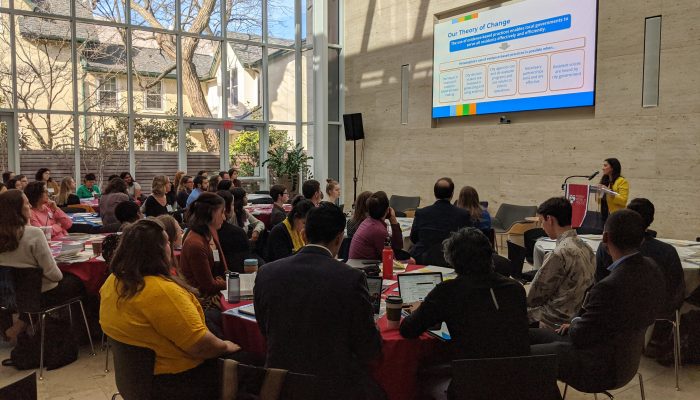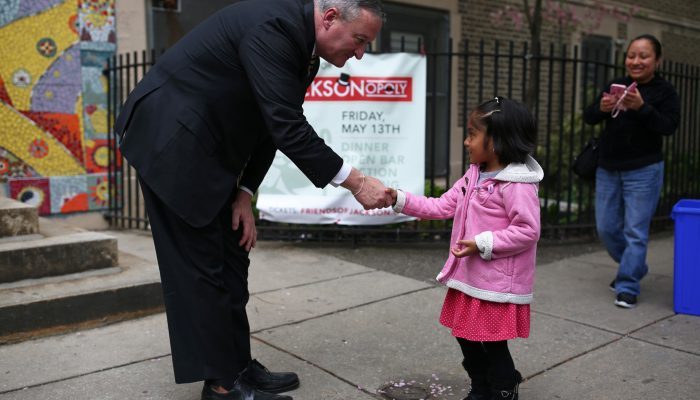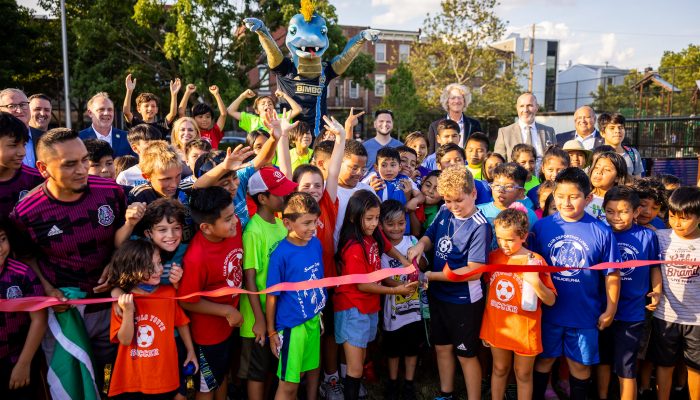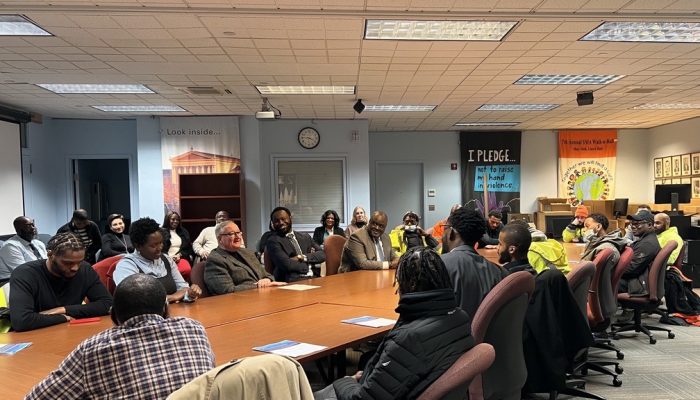This post was written by Mariele McGlazer, Manager for GovLabPHL
GovLabPHL, an initiative led by the Mayor’s Policy Office, is dedicated to elevating the use of data and evidence in City government. On January 24th, GovLabPHL held a conference to bring leading national researchers to share actionable, evidence-based insights from social science to inform the City’s work in top priority areas during Mayor Kenney’s second term.
With the generous support of the Fels Institute of Government and the School of Arts and Sciences at the University of Pennsylvania, presenters shared research related to violence prevention and policing, poverty reduction, and economic mobility.
Here are three things we learned from the GovLabPHL 2020 Conference:
1. Policymakers, practitioners, and researchers want to work together
Mayor Kenney began the day by emphasizing his investment in evidence-based policymaking and expressing his gratitude for the commitment of researchers and City employees in coming together to figure out how to better serve Philadelphia residents. This laid the foundation for a day of collaborative learning.
Dan Hopkins, Professor of Political Science at Penn and the co-founder of the Philadelphia Behavioral Science Initiative, highlighted the opportunity for continued and greater collaboration between the City and researchers at local academic institutions.
The conference demonstrated that this collaboration is possible, and the high level of interest in the event is evidence that there is appetite for more opportunities to bridge the gaps between research, policy, and practice.
2. We need to consider the context of poverty, starting with the brain
The conference’s morning keynote speaker was Sendhil Mullainathan, a professor at University of Chicago’s Booth School of Business and author of the book Scarcity. His research shows how people in poverty–who constantly juggle thoughts and concerns about money, with high stakes for decisions and very little margin for error–face a context in which they have limited mental “bandwidth” left over.
Mullainathan encouraged attendees to consider designing programs that don’t require unnecessary bandwidth from residents, and to create “mental infrastructure” that aligns with the lived reality of people in poverty.
Building off this powerful keynote, other presenters spoke to different dimensions of economic mobility:
- Sara Goldrick-Rab, a professor at Temple University and founder of the Hope Center for College, Community and Justice, called for better data and more supports to meet the basic needs of Philadelphia’s college students.
- Cornell University professor Jamila Michener emphasized the importance of ensuring the voices of those in poverty are heard.
- David Williams, Policy Director at Opportunity Insights, shared research about the impact of housing policy and neighborhood characteristics on economic mobility.
3. Reducing violence requires defining new approaches, partnerships, and goals
Two afternoon speakers shared evidence related to policing and violence reduction. Rutgers University’s Michael Sierra-Arévalo emphasized that interventions like “community-oriented policing” must be well-defined in order to be evaluated. He also shared results from his study showing that positive, non-enforcement interactions between police officers and residents can increase perceptions of trust and legitimacy in the community.
Patrick Sharkey, a professor at Princeton University, shared his work examining the impacts of violence in communities and the role of nonprofit organizations in reducing violence. He called for a new model of investment rather than punishment to sustain the trend of declining urban violence into the future.
The conference ended with a panel of City officials from the Office of Violence Prevention, the Police Department, and the Department of Public Health discussing how they are working together to address Philadelphia’s urgent challenge of gun violence. They spoke to shared challenges related to data and evaluation, and opportunities to use a public health approach with evidence-based methods to make a real difference in the lives of the individuals and communities most affected.
GovLabPHL is grateful to all our partners, attendees, and speakers for making the 2020 Conference a success. We look forward to carrying the day’s evidence-based insights forward into Mayor Kenney’s second term.




